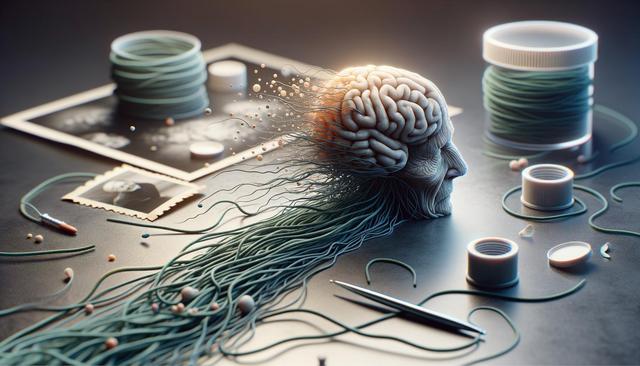What Is Dementia and Why Early Detection Matters
Dementia is not a single illness but a term used to describe a range of progressive neurological conditions that affect memory, thinking, behavior, and the ability to perform everyday activities. Common types include Alzheimer’s disease, vascular dementia, and Lewy body dementia. While dementia itself is not fatal, complications resulting from it—such as infections or injuries—can be. Early detection plays a vital role in managing symptoms, planning care, and potentially slowing the progression through lifestyle changes and medical interventions. Recognizing the early signs gives patients and families more time to adjust and prepare for the future.
When dementia is caught early, individuals have the opportunity to participate in decisions about treatment and future care. Moreover, certain symptoms may be caused by treatable conditions like depression, thyroid problems, or vitamin deficiencies, which can mimic dementia. This makes early assessment even more critical. Identifying the signs at an early stage allows for a comprehensive medical evaluation to rule out reversible causes and develop a care plan tailored to the individual’s needs.
Common Early Warning Signs to Watch For
Early symptoms of dementia can be subtle and may vary depending on the type of dementia and the individual. However, there are several hallmark signs that often appear in the initial stages. Being aware of these can make a significant difference in how soon a diagnosis is made. Key early signs include:
- Short-term memory loss or forgetting recent events
- Difficulty finding the right words or following conversations
- Disorientation in familiar places or getting lost easily
- Challenges with planning, problem-solving, or completing routine tasks
- Changes in mood, personality, or behavior
These changes may be mistaken for normal aging or stress, but persistent or worsening symptoms should prompt a visit to a healthcare provider. It’s important to document when the symptoms started, how often they occur, and whether they’re getting worse over time. Keeping a record can help doctors make a more accurate diagnosis.
Behavioral and Psychological Changes
Beyond memory loss, dementia often brings about changes in mood and behavior that can be distressing for both the individual and their loved ones. These shifts may appear before more obvious cognitive decline and are sometimes dismissed as depression or anxiety. Behavioral changes might include:
- Increased irritability or aggression
- Withdrawal from social activities or hobbies
- Loss of interest in things once enjoyed
- Paranoia or growing suspicion of others
Psychological symptoms such as confusion, delusions, or hallucinations may also develop. These changes can impact relationships and daily interactions, leading to further isolation. Recognizing these symptoms as potential signs of dementia rather than isolated mental health issues can help initiate appropriate care and support early on.
The Role of Routine Check-Ups and Screenings
Regular medical check-ups are a key component in spotting the early signs of dementia. During these visits, doctors may conduct cognitive screenings or refer the patient to a neurologist for further evaluation. These assessments typically include memory tests, language skills evaluations, and problem-solving tasks. Blood tests and brain imaging may also be used to rule out other causes of cognitive decline.
For individuals over the age of 65 or those with a family history of dementia, discussing cognitive concerns during annual physicals is advisable. Early intervention strategies may include:
- Dietary and lifestyle changes to support brain health
- Cognitive training or memory exercises
- Medication to manage symptoms or slow progression
- Engaging in social and physical activities to promote mental well-being
These proactive steps can help maintain independence and delay the need for full-time care. Involving family members in medical appointments can also ensure a more comprehensive understanding of the changes being observed.
Preparing for the Future After an Early Diagnosis
Receiving a diagnosis of dementia in its early stages can be overwhelming, but it also provides a valuable window of opportunity to plan ahead. This includes making legal and financial decisions, exploring long-term care options, and discussing personal preferences for future medical treatment. Early planning helps reduce stress later when the condition has progressed and decision-making becomes more difficult.
Families and caregivers can also benefit from early support. Accessing education, counseling, and local resources can enhance caregiving skills and reduce burnout. Support groups provide a platform for sharing experiences and coping strategies. Some practical steps to consider include:
- Establishing a durable power of attorney
- Creating a living will or advance directive
- Reviewing insurance and financial plans
- Exploring home modifications to ensure safety
By addressing these matters early, individuals with dementia can maintain a sense of autonomy and dignity while ensuring that their future care aligns with their values and wishes.


